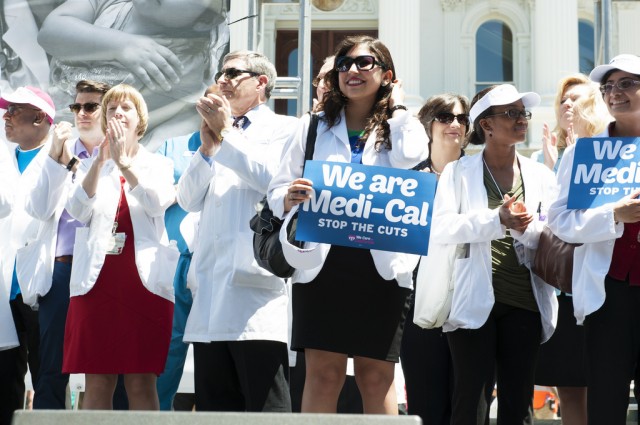
A long-awaited and much-feared ten percent rate cut goes into effect Thursday for doctors and clinics reimbursed through Medi-Cal –- the state’s health insurance for low-income patients. This comes at the same time the federal health overhaul is expanding that program to as many as 2 million Californians.
Provisions of the Affordable Care Act will protect primary care doctors from the cuts for the next two years, but specialty doctors that treat the poor are bracing for the hit. Many physicians in dermatology, neurology, cardiology, and urology will now be losing money on every Medi-Cal patient they see. Some will have no choice but to turn low-income patients away.
“Bottom line, they cannot continue to provide care for below the cost of care,” says Shannon Smith-Crowley, a lobbyist who works closely with the California Medical Association.
She says the situation could be especially dire for clinics that have a heavy load of low-income patients –- some may be forced to close: “There’s no way that a lot of those practices can keep their doors open. It simply does not pencil out,” she says. “It’s really, really scary.”
Doctors are also worried about having to pay back years’ worth of retroactive cuts, dating back to 2011 when they were first signed into law. The state was in financial turmoil then. But now the fiscal picture is much improved and clinics have been pressuring lawmakers to reverse the cuts. Democrats have drawn a budget blue print that does just that.